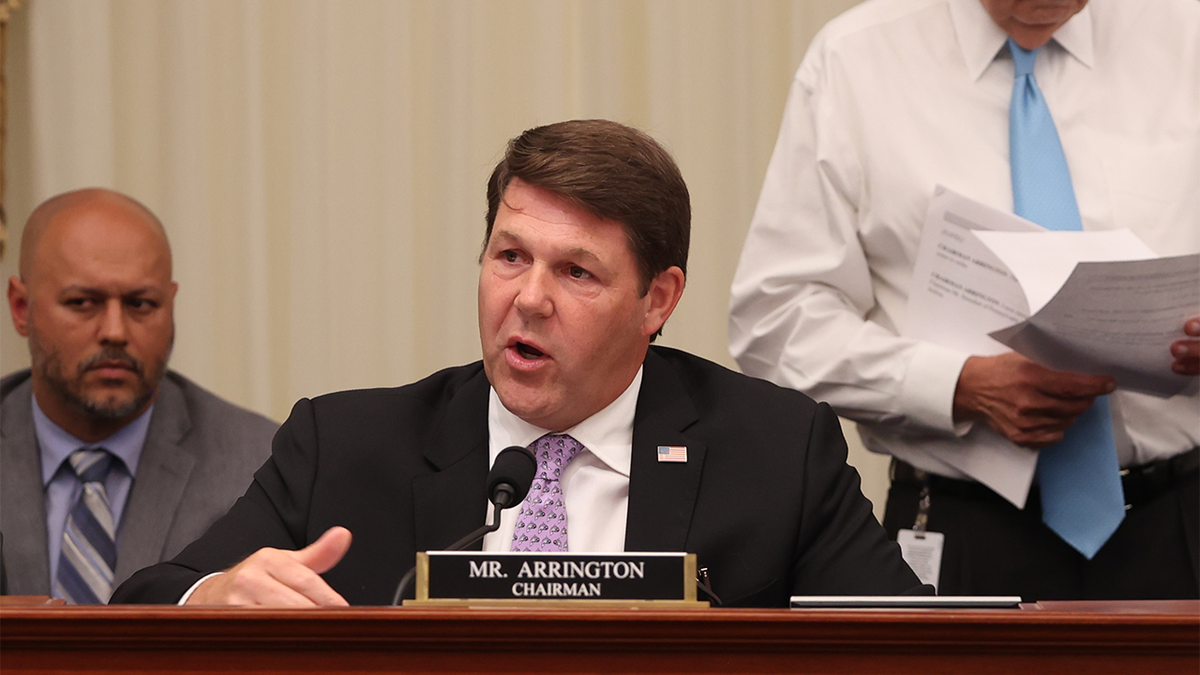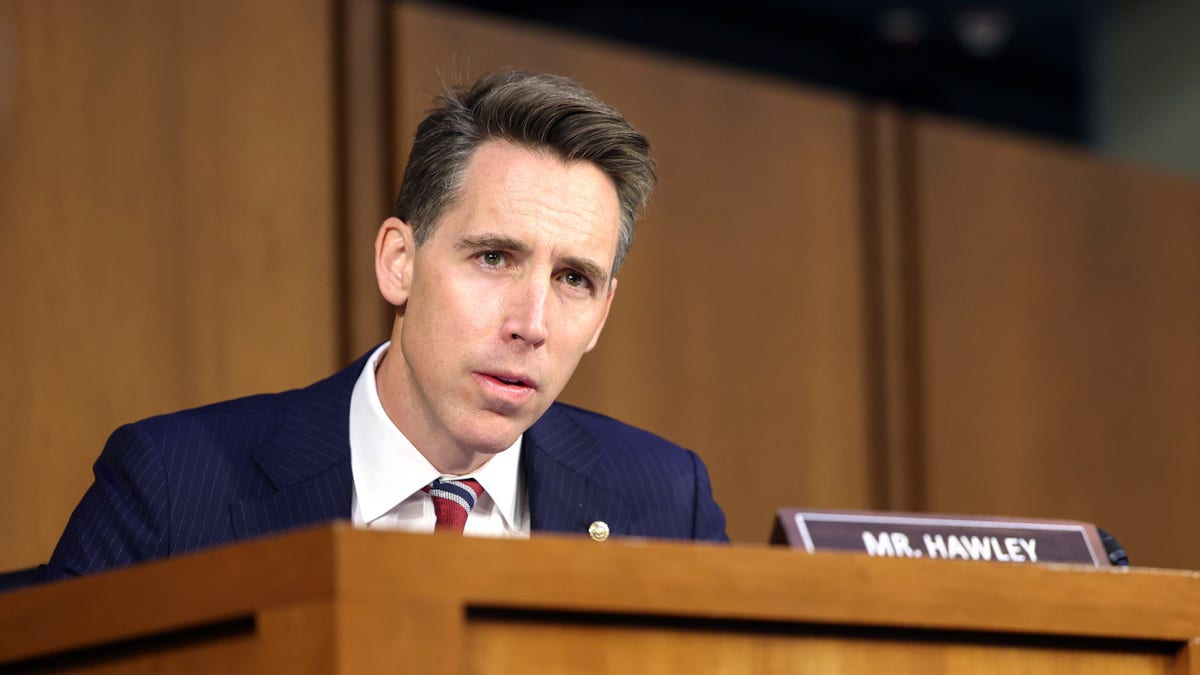INTERNACIONAL
SCOOP: House GOP circles wagons on Trump tax-and-spend bill as Senate seeks changes

NEWYou can now listen to Fox News articles!
The House GOP is quietly mounting a pressure campaign on the Senate to accept its version of President Donald Trump’s «one big, beautiful bill» even as lawmakers in the upper chamber signal they’ll be making changes.
Tensions are simmering between Republicans in the two chambers as they work to pass a massive tax, immigration and energy bill via the budget reconciliation process.
The House Budget Committee held a staff-level communications briefing on Monday, two sources told Fox News Digital, the same day the Senate returned from the Memorial Day week recess to begin consideration of the massive bill.
Senate Republicans have vowed to tweak the House’s offering to varying degrees, with some wanting to tackle even deeper spending cuts and others wanting to soften the blows to Medicaid and green energy subsidies.
MIKE JOHNSON, DONALD TRUMP GET ‘BIG, BEAUTIFUL’ WIN AS BUDGET PASSES HOUSE
Senate Majority Leader John Thune, left, President Donald Trump and House Speaker Mike Johnson. (Getty Images)
While lawmakers in the upper chamber are still working out the kinks of their approach, they agree the bill will be different.
Both sources interpreted the meeting as a way to get ahead of Senate Republicans’ criticism of certain aspects of the bill.
Documents viewed by Fox News Digital that were handed to House Republican aides show specific talking points about the bill’s taxpayer savings, Medicaid provisions and green energy subsidy rollbacks, among other topics.
The document pushed back on the nonpartisan Congressional Budget Office (CBO) estimate that the bill would add more than $2 trillion to the deficit over a decade.
«The cost of the bill ($4.12 trillion) is surpassed by the savings ($4.29 trillion) associated with mandatory spending reforms ($1.7 trillion) and economic growth ($2.6 trillion),» the document said.
It suggested House Republicans assume 2.6% economic growth over 10 years rather than the CBO’s unprecedentedly low 1.8%.
MEET THE TRUMP-PICKED LAWMAKERS GIVING SPEAKER JOHNSON A FULL HOUSE GOP CONFERENCE
«House Budget is desperately circling the wagons with staff and members to make sure they do not forget the fight is not over on messaging why their bill is better than their Senate rivals,» one House GOP aide told Fox News Digital. «They got jammed with the Senate version in the blueprint round and are using every tool at their disposal to make sure it doesn’t happen again.»
A senior House GOP aide also told Fox News Digital, «The Senate should heed President Trump’s wishes to get [the bill] to his desk before July 4th.»
The House passed its version of the legislation late last month after a marathon all-night session full of debate and Democrat procedural motions to delay.

House Budget Committee Chair Jodey Arrington said «we’ve got to get the votes.» (Alex Wroblewski/Bloomberg via Getty Images/File)
The mammoth bill is aimed at permanently extending Trump’s 2017 Tax Cuts and Jobs Act while also including new tax relief for senior citizens and eliminating taxes on tipped and overtime wages.
It would also send new funding to the U.S.-Mexico border and to enhance Immigrations and Customs Enforcement while rolling back a significant portion of the green energy subsidies from the Biden administration’s Inflation Reduction Act (IRA).
To save money and cut down on what Republicans see as waste, fraud and abuse of government safety nets, the bill would introduce Medicaid work requirements for certain able-bodied recipients beginning in December 2026.
It would penalize states that allowed illegal immigrants into the Affordable Care Act-expanded Medicaid population while rewarding states that did not.
Both the IRA subsidies and Medicaid reforms are emerging as pain points for the Senate GOP’s three-seat majority.
The document obtained by Fox News Digital appears to target specific senators’ concerns. For example, one portion of the Q&A specifically said, «No,» the bill does not put rural hospitals at risk.
«The bill reinvests funds to reopen rural emergency hospitals and ensure cost-effective care access,» the messaging guidance said.
HOUSE GOP TARGETS ANOTHER DEM OFFICIAL ACCUSED OF BLOCKING ICE AMID DELANEY HALL FALLOUT
On the rescinded IRA funds, it said, «The bill targets unused or duplicative funds from programs such as the Neighborhood Access and Equity Grants and sustainable jet fuel. These projects aligned more with ideological goals than infrastructure priorities.»
Another note mentioned the electric vehicle (EV) credit rollback, arguing it would «ensure all vehicles contribute to the Highway Trust Fund.»
«EVs cause more wear and tear due to their higher weight but pay no fuel taxes. The bill imposes modest user fees starting no later than the end of FY 2026 and terminates in FY 2035, indexed to inflation,» it said.
But it’s not clear that senators with those concerns will heed the House’s arguments right now.
Sen. Josh Hawley, R-Mo., told reporters Tuesday, «It’s going to hurt rural hospitals in my state.»
Senate Majority Leader John Thune, R-S.D., acknowledged to reporters on Tuesday that while there was discontent over «individual pieces» of the bill, Republicans must agree on something that will pass the chamber.

Sen. Josh Hawley, R-Mo., is opposed to the Medicaid cuts in the House bill. (Kevin Dietsch/Getty Images)
«Failure is not an option. We’ve got to get to 51, so we’ll figure out the path forward to do that over the next couple of weeks,» Thune said.
Other senators, meanwhile, have argued they want to make deeper cuts than what the House came up with.
CLICK HERE TO GET THE FOX NEWS APP
«The House bill, they’re not even scratching the surface. It’s not even the tip of the iceberg in terms of what we need to do to return to a reasonable, pre-pandemic-level spending,» Sen. Ron Johnson, R-Wis., said on Fox Business last week.
When reached for comment, the House Budget Committee referred Fox News Digital to recent comments by Chair Jodey Arrington, R-Texas.
«Some senators will say we went too far on entitlement reform and health care and welfare, and then you’ll have … [f]olks like [Sens.] Rick Scott, Ron Johnson, who are dear friends of mine, all well-intentioned, will say we don’t cut enough spending,» Arrington said on Fox News last week. «Well, the fact is, you can only cut as much as you can get the vote to pass it out of your chamber. And we cut almost $1.7 trillion in spending, which is the largest spending cuts in American history by twofold.»
«There’s always room for improvement, and I welcome that, especially on the fiscal reform side, but we’ve got to get the votes.»
INTERNACIONAL
List of countries taking in illegal immigrant deportees grows with latest African partners

NEWYou can now listen to Fox News articles!
President Donald Trump’s mass deportation efforts gained new momentum this week when Rwanda signed a formal third-country agreement, part of a broader push to partner with nations willing to accept deportees whose home countries refuse to take them back or present other barriers.
RWANDA
Officials in Rwanda agreed to take in 250 illegal immigrants in a deal forged with the State Department Tuesday, joining nearly a half-dozen other nations that have done the same.
When the talks between Washington and Kigali began earlier this year, Rwandan Foreign Minister Olivier Nduhungirehe said the idea is not new to his country, as it previously forged a similar deal with the United Kingdom that was nixed by a London court.
Illegal immigrants deported from the U.S. will be given help to get back on their feet, according to a spokesperson for Rwandan President Paul Kagame.
They will need to be individually approved for resettlement and then receive «workforce training, healthcare and accommodation to jump-start their lives in Rwanda,» the spokeswoman, Yolande Makolo, told the BBC.
TRUMP HAS CUSTODY OVER JAILED CECOT MIGRANTS, EL SALVADOR SAYS, COMPLICATING COURT FIGHTS
Rwandan diplomat Olivier Nduhungirehe, left, with President Donald Trump (Reuters)
ESWATINI/SWAZILAND
In another African nation, Eswatini, named Swaziland until 2018, five foreign nationals were deported from the U.S. to Mbabane in July.
But that operation reportedly lacked the same formal third-country agreement as Rwanda.
The tiny landlocked country, the last absolute monarchy on the continent, abuts Mozambique and South Africa.
The deported men were all convicted of crimes ranging from battery to murder to gang activity and methamphetamine-related offenses.
«This flight took individuals so uniquely barbaric that their home countries refused to take them back,» DHS Assistant Secretary Tricia McLaughlin said in a statement.
«These depraved monsters have been terrorizing American communities, but thanks to [Trump and Secretary Kristi Noem] they are off of American soil.»
The convicts hailed from Vietnam, Jamaica, Laos, Cuba and Yemen.
A spokesman for King Mswati III, who has ruled Eswatini since 1986, told the BBC Eswatini hopes to «facilitate» returning the criminals to their homelands.
SOUTH SUDAN
South Sudan also received eight deportees in July.
Boston federal Judge Brian Murphy issued a preliminary injunction blocking Sudanese deportations and others, ruling migrants needed opportunities to file for protection under a U.S. diplomatic Convention Against Torture (CAT) that precludes expatriation to dangerous countries.
The Supreme Court later stayed Murphy’s ruling.
EUROPEAN NATION AGREES TO ‘TEMPORARILY’ HOST DEPORTED IMMIGRANTS FROM US AMID TRUMP PUSH
COSTA RICA
In February, Costa Rica agreed to accept 200 deported migrants, which included some foreign nationals from India, according to VisaVerge. That nation’s law allows temporary migrant sheltering.
The government in San Jose also reportedly forged a $7.8 million deal in which the U.S. would help it deport immigrants, according to Reuters. The wire service further confirmed the February report.
PANAMA
Also in February, Panama’s foreign ministry told CBS News its first flight of about 200 non-Panamanian deportees arrived from the U.S. under another agreement forged with Washington.
The U.S. will cover the cost of those deportations, which included migrants of mostly Asian descent, from countries like China, Uzbekistan, Nepal, India and Vietnam. Migrants from as far afield as Cameroon and Iran were also reportedly among the group.
EL SALVADOR
The most visible country to aid in deportation efforts has been El Salvador, where congressional Democrats flew after a suspected human trafficker living in Maryland was deported to its infamous CECOT prison.
CLICK HERE TO GET THE FOX NEWS APP
Democrats like Hunter Biden have called out the Trump administration for the effort, which has been met by incredulous responses, such as a retort from Salvadoran president Nayib Bukele.
Bukele poked fun at Biden’s past drug use in response, asking on X if he was «sniffing powdered milk» when the former first son claimed he would threaten to invade El Salvador if he were elected president and if it refused to return deportees.
Sen. Chris Van Hollen, D-Md., was the first to fly to San Salvador to visit Garcia, a trip that appeared to inspire more Democrats to go and others to attempt to gain entry into domestic ICE sites in Newark, Baltimore and New York City.
Fox News’ Louis Casiano contributed to this report.
illegal immigrants,africa,immigration,donald trump,homeland security
INTERNACIONAL
La historia detrás del imbatible récord que Jonathan Edwards mantiene vigente después de 30 años

El 7 de agosto de 1995, el estadio Ullevi en Gotemburgo, Suecia, fue testigo de un momento que marcó un antes y un después en el atletismo. Durante el Campeonato Mundial de Atletismo, Jonathan Edwards, representante de Gran Bretaña, desafió los límites de la disciplina al lograr un salto de 18,29 metros en la prueba de triple salto masculino. Este logro no solo le otorgó la medalla de oro, sino que lo enalteció como protagonista de una de las gestas más impresionantes y perdurables del deporte mundial.
El desarrollo de la prueba fue vertiginoso. En su primer intento, Edwards rompió la barrera simbólica de los 18 metros, transformándose en el primer atleta masculino en lograrlo dentro de una competencia oficial. La hazaña no se detuvo allí; en su segundo salto, extendió su propio récord, aterrizando a 18,29 metros, estableciendo una distancia que ningún rival pudo aproximar. El principal contendiente, Brian Wellman de Bermudas, quedó relegado a más de medio metro por detrás, un margen inédito en una final de este nivel.
La superioridad de Edwards quedó consolidada con su tercer intento de 17,49 metros, que si bien fue inferior a los dos anteriores, bastó para sellar su dominio y asegurar la medalla dorada.
La magnitud de la marca alcanzada por Edwards se evidenció en la reacción tanto del público como del propio protagonista, que no tardó en mostrar sorpresa y satisfacción tras observar el resultado en la pantalla gigante del estadio. “Pensé que fácilmente podría no ganar”, recordó en declaraciones levantadas por CNN. Y agregó: “Tenía la posibilidad de no ganar, y eso sería un desastre, a pesar de haber saltado tan bien durante todo el año”.
En las entrevistas posteriores, transmitió su alegría por haber logrado algo que ningún otro hombre había hecho antes: superar y mejorar la marca histórica del triple salto. Lejos de considerarse una figura poderosa dentro del atletismo, resaltó sus características físicas poco convencionales —piernas delgadas y escasa contextura muscular— como elementos que hacían aún más sorprendente su éxito. Para él, la experiencia de convertirse en el mejor del mundo se tornó excepcional, tanto en términos deportivos como personales.
Además, el récord redefinió la competición en Gotemburgo: tras los dos saltos exitosos de Edwards, la lucha por el oro quedó prácticamente resuelta, enfocando la atención global en el alcance de la marca en sí.

Desde 1995, ningún otro atleta consiguió superar el registro de 18,29 metros, lo que confiere al salto de Edwards un estatus especial dentro del atletismo de élite. En treinta años, la marca se ha convertido en una referencia histórica y, según los especialistas citados por CNN, representa uno de los récords más sólidos de la era moderna.
En términos comparativos, solo dos récords masculinos en pruebas de campo han mostrado una vigencia similar o mayor: el de Mike Powell en salto de longitud (8,95 metros alcanzados en 1991) y el de Javier Sotomayor en salto de altura (2,45 metros logrados en 1993).

El propio Edwards atribuye su éxito a una combinación única de velocidad y ligereza, poco habitual en un deporte que, con el paso de los años, ha tendido a priorizar la potencia muscular sobre las cualidades aerodinámicas y la velocidad de carrera.
Mientras la mayoría de los competidores más recientes presentan una complexión más robusta, Edwards destaca que su método remitía a una suerte de “rebote” más que a un salto tradicional, permitiéndole mantener una velocidad máxima durante las distintas fases del salto, algo que pocos han logrado replicar. En su análisis, el predominio actual de saltadores más potentes física y muscularmente ha hecho que la técnica rápida y fluida que él supo explotar resulte menos frecuente y, en la práctica, casi inalcanzable.

Edwards destacó no solo por su rendimiento deportivo, sino también por la singularidad de su trayectoria personal y motivacional. Su impulso inicial hacia el deporte profesional se cimentó más en convicciones personales que en ambiciones estrictamente deportivas. La fe cristiana jugó un papel decisivo durante sus primeros años, otorgando sentido a su carrera y brindando una perspectiva que le permitió afrontar la presión de la alta competencia desde una dimensión espiritual.
El entorno familiar, en particular su padre —vicario de la Iglesia de Inglaterra—, lo animó a identificar y potenciar el talento recibido, bajo una ética de responsabilidad y aprovechamiento de los dones personales. Esta actitud forjó una resiliencia notable, que le permitió sobrellevar la exigencia de una disciplina tan compleja como el triple salto.
Su expresión más memorable fuera de la pista se produjo en Lille, Francia, en 1995, donde realizó un salto no oficial de 18,43 metros que, si bien superaba su propio récord, fue invalidado por las condiciones de viento. Ese momento, más allá de la validación oficial, representó el cenit técnico de su carrera, y subrayó que alcanzar la perfección en esta disciplina depende de múltiples elementos que rara vez coinciden.
INTERNACIONAL
Además del repudio internacional, el plan de Benjamin Netanyahu sobre Gaza despierta rechazos dentro de Israel

Críticas en Israel
Una «catástrofe colosal» para los rehenes
Israel,Franja de Gaza,Benjamín Netanyahu

 CHIMENTOS3 días ago
CHIMENTOS3 días agoMalas noticias para Wanda Nara: por qué la bajaron misteriosamente de MasterChef: «No va a salir este año»

 SOCIEDAD3 días ago
SOCIEDAD3 días ago“¡Vergüenza nacional! La Policía Federal recibirá aumentos ridículos de solo $10.000 y vive un colapso salarial mientras el costo de vida se dispara”

 POLITICA3 días ago
POLITICA3 días agoSebastián Pareja justificó el armado de listas de LLA en la Provincia: “El desafío era dar una opción diferencial”






















